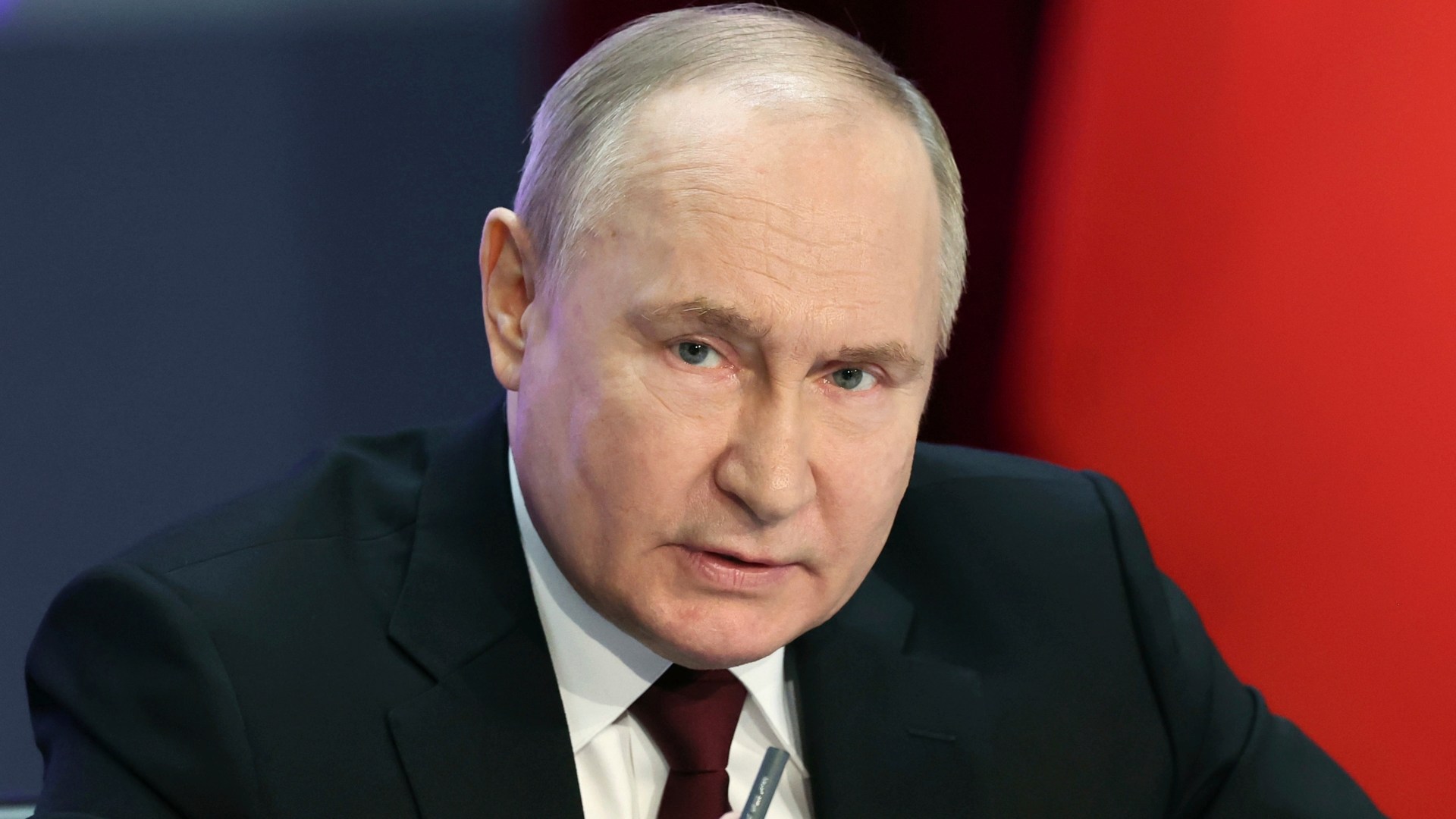
THOUSANDS of British holiday flights have been hit by suspected Russian jamming — with aviation sources branding the tactic “extremely dangerous” and a major threat to air safety.
The electronic attacks render satnavs useless so aircraft are unsure of routes and struggle to tell others where they are.

Credit: AP

Credit: Getty
Bogus data forced planes to swerve and dive to avoid phantom obstacles that were not really there.
Industry sources warn it is extremely dangerous.
In eight months to the end of March, 2,309 Ryanair flights and 1,368 Wizz Air planes logged satnav problems in the Baltic region.
Also hit were 82 British Airways flights, seven from Jet2, four EasyJet flights and seven operated by TUI.
Interference from Vladimir Putin’s forces includes jamming and spoofing.
Jamming drowns out genuine signals from satellites including GPS and Europe’s Galileo system.
Spoofing uses bogus signals to trick aircraft into thinking they are somewhere they are not.
An industry source said: “The information from the Russians is spurious. It is extremely dangerous.”
In January Europe’s air safety watchdog described jamming and spoofing as “attacks” but did not say who was behind them.
The European Aviation Safety Agency held a summit with the global body representing airlines to counter the threat.
Luc Tytgat, boss of EASA, said: “We have seen a sharp rise in attacks on these systems, which poses a safety risk.”
The Sun was on board an RAF jet with Defence Secretary Grant Shapps last month when it was jammed as it flew through Poland, near Russia’s Kaliningrad enclave.

An aide blamed Russia for the “wildly irresponsible” attack.
Passengers are normally unaware if their jet is being jammed.
But The Sun joined forces with researchers at GPSJAM.org to analyze public flight logs.
Aircraft send Automatic Dependent Surveillance-Broadcasts to let others nearby and controllers know where they are.
These signals include an estimate of how well the satnav is working. Poor performance indicates jamming or spoofing.
Jamming Hotspots
GPSJAM admits the signals do not prove jamming conclusively.
But it said: “Areas where a significant percentage of aircraft report low navigation accuracy seem to correlate well with areas of known and suspected jamming.”
The logs show jamming hotspots in the Baltic, Black Sea and eastern Mediterranean.
We focused on the Baltic where 46,000 aircraft reported satnav problems between August and the end of March.
The only major UK carrier not affected was Virgin Atlantic, as its aircraft do not fly through the region.
The Russians have long used GPS jamming as a harassment tool
War expert Dr Jack Watling
Our research showed suspected Russian attacks have increased from fewer than 50 a week last year to more than 350 a week last month.
War expert Dr Jack Watling, at the RUSI think tank, said: “The Russians have long used GPS jamming as a harassment tool, projecting it across Nato borders.
“Wherever there is a large Russian garrison you are seeing GPS denial and there is one in Kaliningrad.
“They just have that stuff switched on because there are standing orders.”

Credit: Alamy
Defence officials have also accused Russia of jamming GPS signals over RAF Akrotiri, Cyprus.
Spoofing and jamming is going on in Ukraine where Kyiv and Moscow are trying to scupper the accuracy of missiles and drones.
Ryanair said: “If any location systems, such as GPS, are not functioning then the crew switch to alternate systems.”
Easyjet said it had procedures to mitigate against GPS issues.
TUI does not fly in the Baltic and said its seven affected aircraft were probably positioning flights without passengers.
BA and Jet2 declined to comment.
Glenn Bradley, from the UK Civil Aviation Authority, insisted that flying remained one of the safest forms of travel.
He said: “There are several safety protocols in place to protect navigation systems on commercial aircraft.”
“GPS jamming does not directly impact the navigation of an aircraft and while it’s a known issue, this does not mean an aircraft has been jammed deliberately.”
“While operators have mitigations in place to assure continued safe operations, we work closely with other aviation regulators, airlines and aircraft manufacturers to curb and mitigate any risks posed by jamming and continuously monitor incidents worldwide.”
